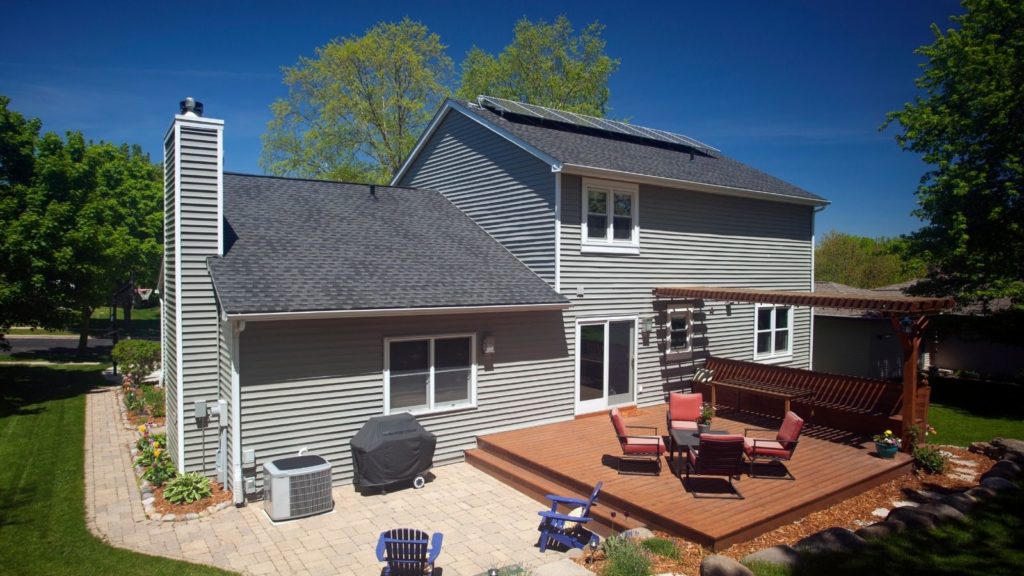Homebuyers usually have lots of questions. They may wonder about things like neighborhoods, amenities and other local points of interest when they are researching homes that are currently up for sale. The condition of different properties can also raise concerns for many people.
A commonly asked question is what a buyer will own when they buy a particular house. Some interested parties want to know if the land and any items on that land (such as gardens, trees, lawns, and attached items such as basketball hoops, fire pits or storage sheds) will belong to them. The answer to that question isn’t always the same. It really depends on the individual situation.
Buying a home in California can take time. You may spend several weeks or months saving to be able to afford the house you want, and still have to wait for a title search, home inspection, home appraisal and other tasks to be completed after you’ve signed the purchase agreement.
There may even be unexpected delays or problems that can occur. You should still be able to accomplish your goal in most instances. Planning, persistence and a proper plan of action are essential for success. Here are a few things to know about what’s included when buying a house.
Here’s what’s included in the purchase of most homes:
1. The house itself.
The home is one of the biggest assets that you’ll own. Everything on the interior and exterior of the house is yours.
It’s up to you if you want to keep everything as is or if it’s time to paint walls, replace siding and windows or give your home a more modern look and feel with new appliances and other items.
You can make as few or as many upgrades or improvements as you’d like.

2. The land underneath the house.
The majority of homeowners also own the land in their lot and the land that their home rests on. There have been some situations in which a property’s mineral rights have been purchased by another entity.
Your state or local ordinances may prohibit companies from drilling for certain minerals in your yard even if that particular organization owns the mineral rights.
Your respective local government office should have complete information about any mineral rights that may have been purchased on your land.
3. Any furniture, appliance or other items left behind by the seller.
Your purchase agreement will typically state which parties own and are responsible for different items.
Generally speaking, if the seller leaves behind any furniture, appliances (such as a stove, refrigerator, or central heating and cooling system) or other things behind, they will belong to you when the sale has been completed.

You can do what you want with those items. In most cases, it’s easier and less time-consuming for sellers to purchase new appliances, furniture and related products when they move to their new location.
4. Any trees, flowers or plants on the property.
Existing flowers, trees, shrubs and plants on your land that remain after the house has been sold will also be yours.
You can keep or replace them as you see fit. Vibrant plants and gardens and healthy trees can make your yard more inviting and add resale value to your property in the long run.
5. Fixtures.
Fixtures are defined as items that are permanently secured to the ground or floor. Appliances, fire pits, and basketball hoops are common examples of fixtures. You may also have other items such as a storage or utility shed or underground pool that could be considered fixtures.

They can be very difficult to move or replace and can take more time and effort to move or relocate than they may actually be worth.
Conclusion
Any items that may be claimed by others should be listed in a disclosure report. Each state is different in terms of what must be included in disclosure reports. Utah currently requires that potential buyers be informed about any possible contamination in the house due to the production, storage or use of methamphetamines.
It’s still a good idea to include any material disclosures (such as mineral rights to the land that the home’s on, for instance) to people who are interested in buying your home. Those facts could have a substantial impact on their decision whether or not to make an offer on the house.
The title search should uncover any active claims against the property. Claims can be made for unpaid property taxes, liens, easements, encroachments or other matters. If such issues are discovered, the home seller and buyer can work together to resolve those issues in a timely manner.
If you’re concerned or have questions about what items you will or won’t own after buying a particular home, you can discuss them with your realtor and the home seller. Be upfront, open and honest in your communication. Make sure that you read the purchase agreement carefully before signing it so that you are aware of any potential problems. It may take a little extra time to go over the fine print in your contract, but you could identify errors or ambiguities that could end up costing considerable money or effort later on.
Do your homework and make sure that you fully understand any claims, grants or other legal rights to the house that you’re about to buy. You can even make a list of the things that you will own and the things that the seller or other parties will own once the sale has been finalized. The more you can do to protect your own interests in the property, the better.
After that’s been taken care of, you can look ahead to the home inspection and appraisal. It won’t be long before the closing has been completed and you’ll be given the keys to your new house. It will be time to look ahead optimistically to the next chapter of your active life.
📞 Have Questions? Ask The Chris Eckert Real Estate Team
Give The Chris Eckert Real Estate Team a call today at 650.627.3799 to learn more about local areas, discuss selling a house, or tour available homes for sale.





